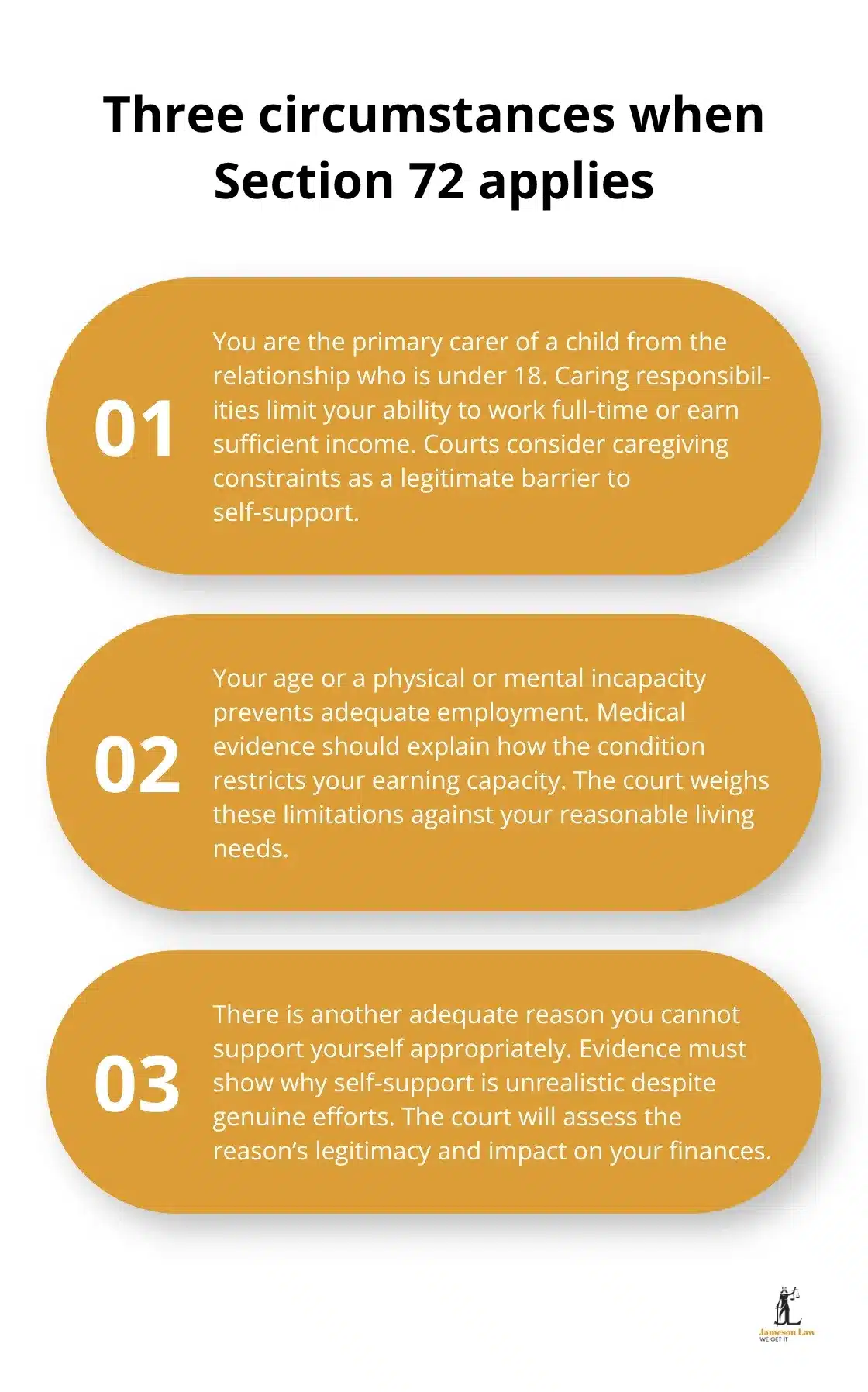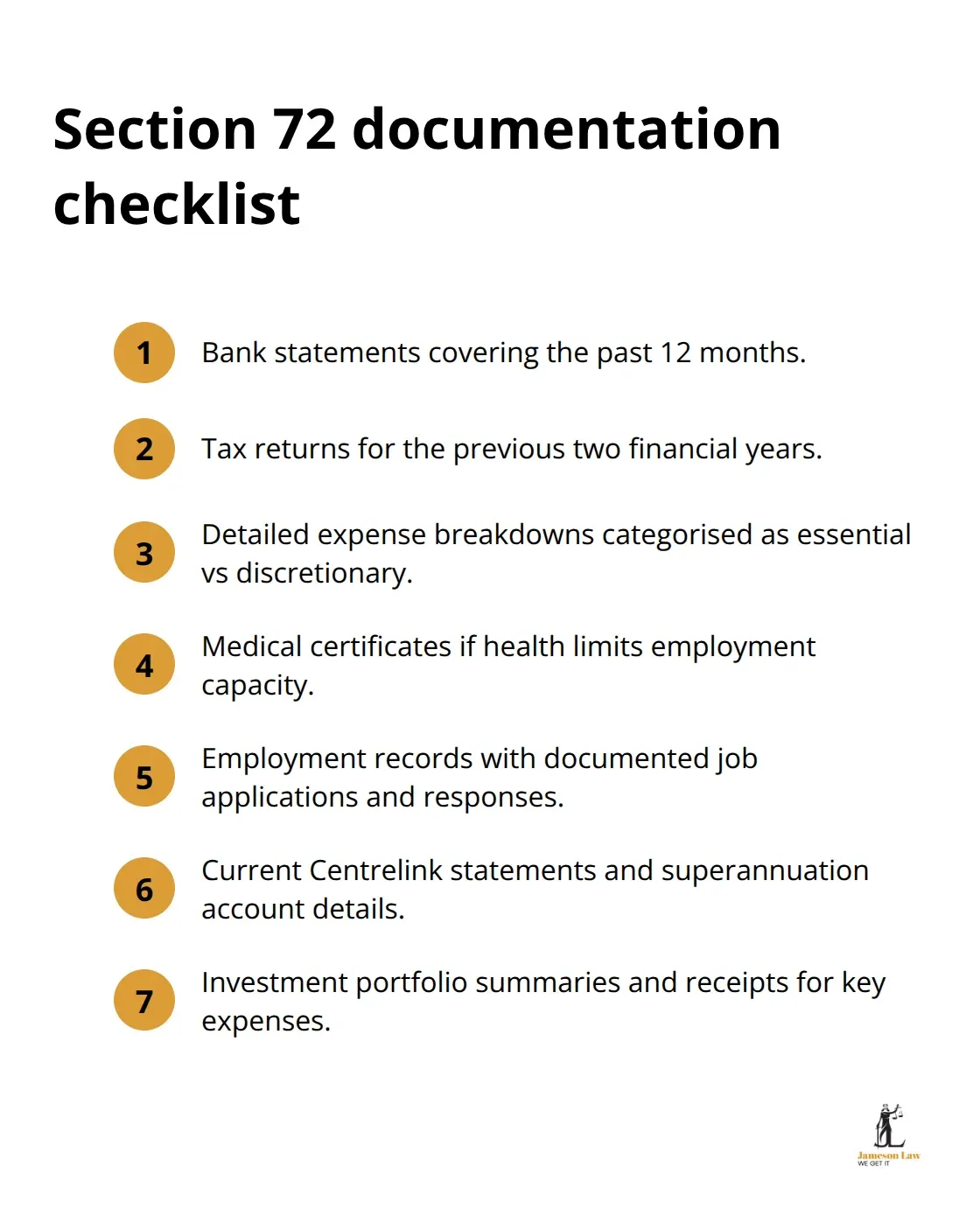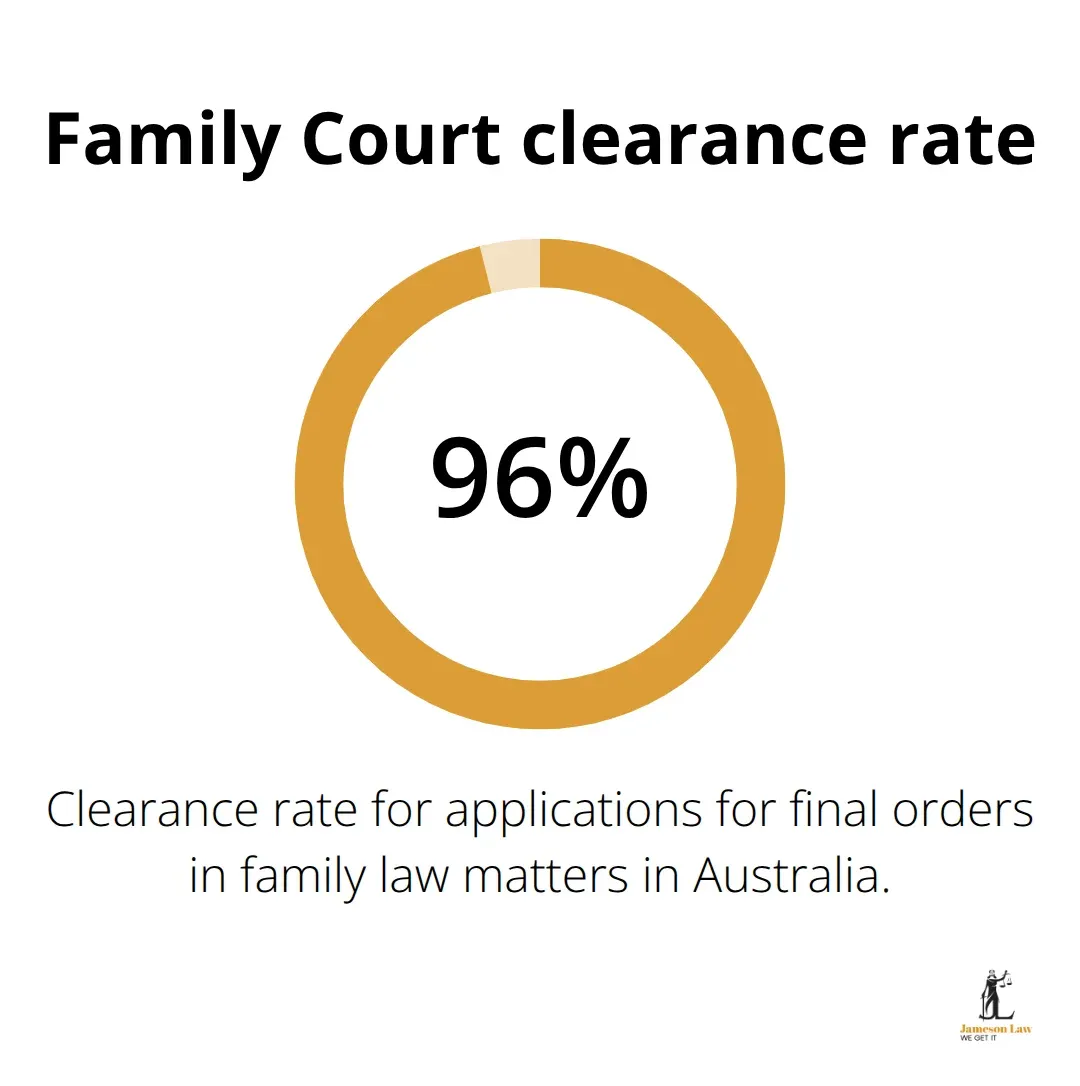Section 72 Family Law Act creates specific legal obligations that many families overlook until it’s too late. Missing these requirements can lead to costly delays and legal complications regarding spousal maintenance.
We at Jameson Law, as experienced family lawyers in Sydney, see clients struggle with Section 72 compliance daily. This guide breaks down the exact steps you need to take and the deadlines you must meet to stay compliant.
What Does Section 72 Actually Require From You?
Section 72 of the Family Law Act 1975 establishes your legal right to seek spousal maintenance when you cannot adequately support yourself after separation. This section applies specifically when you care for a child under 18, face age or physical limitations that prevent full-time work, or have other reasons that make self-support impossible. The legislation requires you to demonstrate both your inability to support yourself and your former partner’s capacity to provide financial assistance.
Three Core Criteria That Determine Your Rights
The Family Law Act sets out three specific circumstances where Section 72 Family Law Act applies to your situation. First, you qualify if you care for a child under 18 years old from the relationship. Second, age or physical and mental incapacity that prevents adequate employment makes you eligible. Third, any other adequate reason that justifies your inability to support yourself appropriately can qualify you for maintenance.

Courts examine your employment history, health records, and current financial position when they assess these criteria. Your former partner’s income, assets, and financial commitments directly impact the court’s decision on maintenance amounts.
Financial Evidence You Must Provide
Section 72 compliance demands comprehensive financial disclosure from both parties. You must provide detailed evidence of your expenses, income sources (including Centrelink), employment efforts, and any barriers to increased earnings. Under the Family Law Act 1975, a person has a responsibility to financially assist their spouse or former de facto partner if that person cannot meet their reasonable living expenses.
How Courts Assess Your Application
Courts apply strict criteria when they evaluate Section 72 applications. They examine whether you genuinely cannot support yourself and whether your former partner has the financial capacity to assist. The assessment includes your efforts to find employment and retraining opportunities.
Mandatory Documentation and Evidence Requirements
Your Section 72 Family Law Act application requires specific financial documents that courts examine with intense scrutiny. You must submit comprehensive bank statements that cover the past 12 months, complete tax returns for the previous two financial years, and detailed expense breakdowns.

Financial Evidence That Courts Accept
Courts demand proof of your genuine inability to support yourself through detailed financial analysis. Your application must include current Centrelink statements and superannuation account details. Document every expense with receipts that you organise into essential costs versus discretionary spending. The Australian Institute of Family Studies reports that applications require comprehensive financial evidence for favourable outcomes.
Critical Deadlines You Cannot Miss
Married couples face a strict 12-month deadline after divorce finalisation to file Section 72 applications, while de facto partners have only two years from relationship breakdown. Courts grant permission to file after these deadlines rarely and only under exceptional circumstances through hardship applications.
When Should You Hire a Family Lawyer?
Section 72 applications fail at alarming rates when people attempt self-representation. Legal representation becomes essential the moment your former partner disputes your maintenance claim or when your financial situation involves complex assets. Immediate legal consultation is necessary if your former partner earns significant income or if you face urgent financial hardship.

Early Legal Intervention Prevents Costly Mistakes
Family lawyers in Sydney charge rates that reflect their expertise, but early advice prevents costly mistakes. Solicitors who specialise in Section 72 matters draft applications that courts accept on first submission, negotiating settlements that avoid lengthy court battles.
Strategic Legal Planning Maximises Your Outcomes
Experienced family lawyers assess your financial documentation before submission, identify weaknesses, and gather additional evidence. They calculate realistic maintenance amounts based on court precedents and structure payment terms that account for your former partner’s financial capacity.
Final Thoughts
Section 72 Family Law Act compliance demands precise documentation, strict deadline adherence, and comprehensive financial disclosure. Your success depends on complete applications within the 12-month deadline for married couples or two-year limit for de facto relationships.
Professional legal guidance transforms complex spousal maintenance applications from overwhelming challenges into manageable processes. We at Jameson Law help clients gather proper documentation and meet critical deadlines. Our experienced team understands that family law matters demand expert navigation.
The financial stakes make professional representation essential. Proper legal strategy maximises your maintenance outcomes and prevents costly future variations. Contact Jameson Law today for the specialised expertise you need to secure the financial support you deserve.













